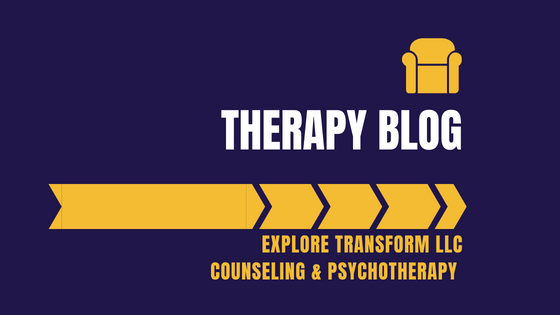|
“I was walking around with it, and I didn’t even realize it was trauma. I always assumed trauma was something a war veteran experienced or the survivor of a plane crash. I didn’t realize that my sh*tty childhood amounted to trauma, this thing that stuck to every part of my life and muddied everything I touched. I thought it was me; I thought I was fundamentally flawed, miswired even, and there were times when I felt hopeless. This made it so hard to reach out for help, and to truly believe that I deserved help, let alone that anything could help me.”
As a psychotherapist working with trauma, I hear this a lot. Although it is getting better, we have spent too many years underestimating the prevalence of trauma. If you think that it can arise as a result of adverse childhood experiences or other chronic situations where we are constantly denigrated, such as racism, homophobia, transphobia, or discrimination due to our socio-economic status or immigration status, you can see how prevalent trauma might be. When we have experienced trauma, when our coping skills have been overwhelmed, this can lead to changes in the functioning of our brain. Trauma changes us in terms of our hopefulness for the future, but also how we interpret the past, something I refer to as the bi-dimensionality of trauma. According to some neuroscientists, we attach meaning to memories, and that meaning is colored by our emotions. At the time of the trauma, we might not believe that we are at fault or powerless, and if we are a small child, we might not even have the ability to hold such beliefs. But over time, as we look back, we can start to interpret the trauma that way. As a result, we anticipate the future with a sense of futility or powerlessness. We can see the effects of trauma in how we behave, in our mood, in our sleep patterns, and physical health but getting help can be difficult when guilt and shame are such an integral part of trauma. From an evolutionary perspective, if a bad thing happens to us, it helps to remember that bad thing, so we avoid it in the future. If a saber tooth tiger attacks you, it serves you well to remember to avoid saber tooth tigers. The limbic system in our brain has various functions including affect, and affect helps to initiate behavior to help with survival. Shame is an aroused affect and so it is a strong deterrent, so it can keep us vigilant and act more defensively. This all makes sense when we were fleeing saber tooth tigers, and when our lifespan was much shorter. But in this modern world, we are living much longer, and witnessing so much more, so this constant influx of trauma has a negative impact on the brain over a longer lifespan. That the trauma inside us that leads to guilt and shame is reinforced by three processes - 1. It serves as a punishment because we believe we deserved it; this is a negative way that the brain makes us try to do better. 2. It serves as a distraction from deeper or more painful emotions. 3. If we think of something awful that might happen, that tricks us into believing that we can somehow control the future. For example, I know I will fail. To heal from trauma and break from this shame and guilt, we need to find ways to think of ourselves differently, and this could be something as simple as journaling. I love writing, whether it is fiction or non-fiction, it really helps me to interpret and re-interpret things I have experienced. In the same way, this is why talking to other people, including a therapist, can help. This process helps with trying to gain distance, developing compassion, but also understanding why certain things are a certain way. However… It can be hard to give up that punishment, distraction and control when it creates arousal that we can apply for gain. But we mustn’t take a limited view of gain; for example, we might end up working hard and reaping financial gain, but we might lose a great deal in our personal relationships. Trauma, and the associated shame and guilt, can be hard to manage without professional help, although this is not impossible. If you feel that you do need professional help with this, please reach out so you can have a free, confidential telephone conversation with me. Book online today for a free callback. Alternatively, you can email us at [email protected] or call us on +1 (201) 779-6917. Chris Warren-Dickins LLB MA LPC Explore Transform LLC Counseling and Psychotherapy in Bergen County, New Jersey www.exploretransform.com +1 (201) 779-6917 #Trauma, #Depression, #Self-Esteem, #Counseling, #Psychotherapy, #FindATherapist, #Ridgewood, #BergenCounty, #NewJersey, #teletherapy, #FindACounselor, #MentalHealth, #Anxiety, #Stress Comments are closed.
|
Due to the COVID-19 health crisis, we are only offering sessions online.
Our address is 143 E Ridgewood Ave, #1484, Ridgewood, NJ 07450
Telephone: +1-201-779-6917
Lead clinician: Chris Warren-Dickins LLB MA LPC
EXPLORE TRANSFORM LLC
Our address is 143 E Ridgewood Ave, #1484, Ridgewood, NJ 07450
Telephone: +1-201-779-6917
Lead clinician: Chris Warren-Dickins LLB MA LPC
EXPLORE TRANSFORM LLC
© COPYRIGHT 2024 CHRIS WARREN-DICKINS. ALL RIGHTS RESERVED. NJ LICENCE # 37PC00618700



 RSS Feed
RSS Feed
